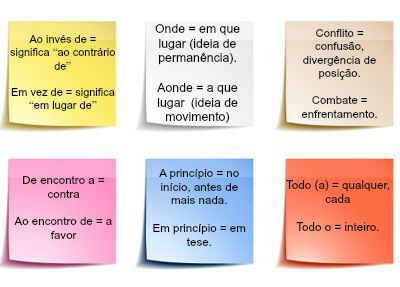So that we can concretely grasp the subject that we are going to study for now, it would be very interesting to analyze together two clauses, which are demarcated below:
The boy is my classmate.
The boy identifies a lot with the study of the Portuguese language.
We have two clauses in which we can see that, in the case of the subject, this is presented in an identical way in both, once expressed by "the boy".Once we have identified this term, so important in constructing a sentence, are we going to try to unite these two sentences and make this set of terms become a compound period? Come on?
The boy what who identifies a lot with the study of the Portuguese language is my classmate.
We now have a compound period, since we find the presence of more than one verb (identifies/is – verb to be). Thus, we also noticed that in the place of the subject of the second sentence, a little word was placed, represented by the word that, whose function is to replace the subject, in order to avoid possible repetitions. This word is a
relative pronoun and, as a result of such substitution, it occupies the syntactic function of subject.Got it? We've already learned one of the syntactic functions of relative pronouns – that of subject.However, we need to be aware that there are several others, that we will get to know them from this moment on, through some examples, of course:

* The place was heavenly.
We didn't know this place.
Shall we join the two prayers?
The place, what we didn't know, it was heavenly.
Asking the question to the verb, we have: What did we not know? The place.
Thus, the syntactic function of the relative pronoun is that of a direct object.
* The movie was unforgettable.
We watched the movie.
Joining these prayers, we obtain:
The film what we saw it was unforgettable.
Note that the verb to watch is classified as indirect transitive. Therefore, the role we can assign to the relative pronoun is that of indirect object.
* We talked to that girl.
That girl would become our best buddy.
Let's, once again, join one information to another, in order to obtain:
That girl with whom we talked would become our best colleague.
Through a very quick analysis, we have to talk, we always do it with someone, never alone. Thus, as it is a complement accompanied by a preposition, we have to syntactic function which is attributed to the relative pronoun “who” is that ofindirect object.
* Goiânia is a city.
The climate is very hot in this city.
Joining the prayers, we have:
Goiânia is a city Where the weather is very hot.
Regarding this finding, we have to syntactic function that can be attributed to the relative pronoun “Where” is that of adverbial adjunct of place.
*The book's plot is exciting.
We read the book.
Shall we join them?
We read the book whose plot is exciting.
We have to relative pronoun “whose” gives a sense of ownership, that is, the plot belongs to the book. Based on this observation, we have to syntactic function of relative pronoun “whose” is that of adnominal deputy.
By Vânia Duarte
Graduated in Letters



